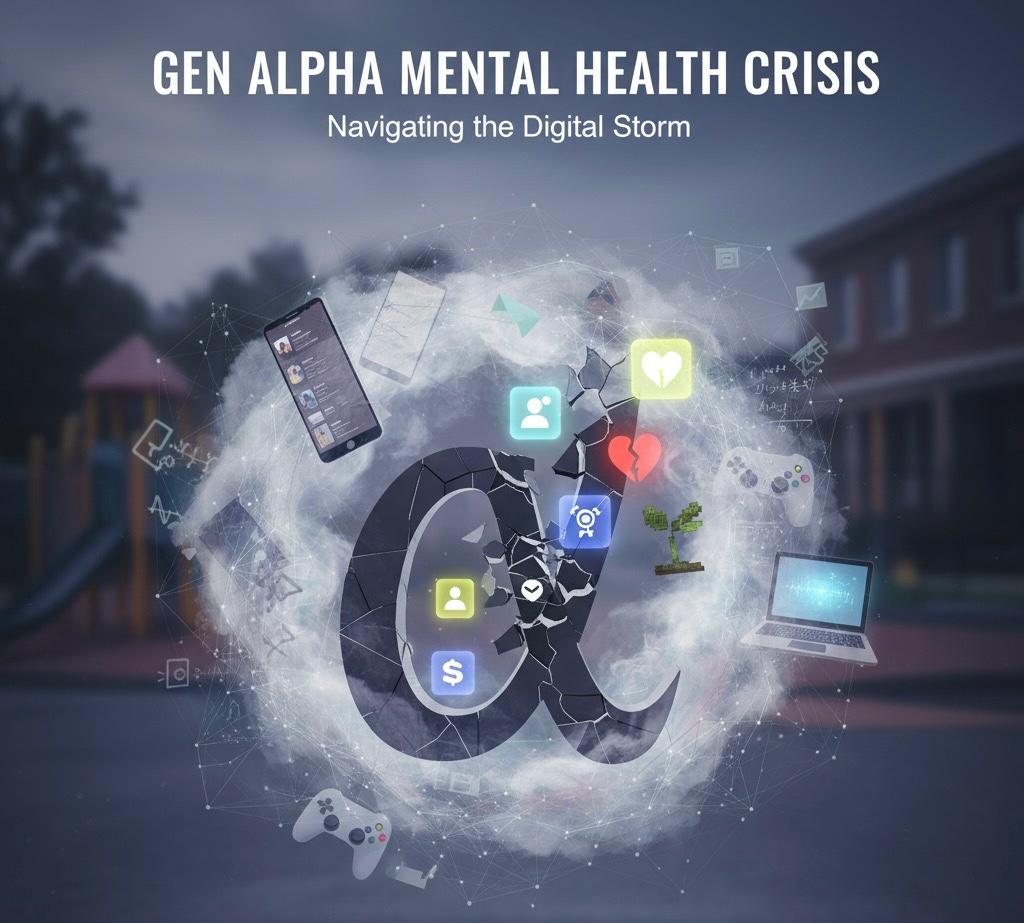As artificial intelligence (AI) and automation continue to revolutionise industries worldwide, their effects on the workforce are becoming increasingly evident. While these technologies promise efficiency, productivity, and economic growth, they also present challenges that can significantly impact the mental health of workers. This article explores the psychological implications of AI and automation on employees, drawing on current research and providing insights into how organisations can mitigate these effects.
Keywords: Mental health impact of AI, Automation in the workplace, AI job displacement anxiety, Workforce mental health challenges, Job insecurity due to automation, AI and work-life balance, Automation and employee stress, Technostress in the workplace, AI-related burnout, Skill redundancy and AI, Mental health effects of AI, Psychological impact of automation
The Rise of AI and Automation in the Workplace
AI and automation have rapidly transformed the modern workplace, streamlining processes, reducing the need for manual labour, and enabling companies to operate more efficiently. From manufacturing to healthcare, AI technologies are being integrated into various sectors, reshaping job roles and the skills required to perform them (Brynjolfsson & McAfee, 2014).
In Australia, the adoption of AI and automation is expected to accelerate over the coming years, with industries such as mining, agriculture, and financial services leading the way (AI Group, 2019). While this technological advancement holds significant potential for economic growth, it also raises concerns about job displacement, skill redundancy, and the broader implications for workers’ mental health.
Job Insecurity and Anxiety
One of the most immediate psychological impacts of AI and automation on the workforce is job insecurity. As machines and algorithms become capable of performing tasks traditionally carried out by humans, many workers fear losing their jobs to automation. This fear is not unfounded; a report by the McKinsey Global Institute (2017) estimated that up to 375 million workers worldwide might need to switch occupational categories by 2030 due to automation.
Job insecurity can lead to significant anxiety, stress, and uncertainty about the future. Research has shown that workers who perceive their jobs to be at risk are more likely to experience symptoms of depression, anxiety, and reduced job satisfaction (Jiang & Lavaysse, 2018). This stress is compounded by the rapid pace of technological change, which can leave workers feeling unprepared and vulnerable to job loss.
The Impact on Work-Life Balance
AI and automation also have implications for work-life balance. While these technologies can reduce the burden of repetitive tasks and improve efficiency, they can also lead to an “always-on” work culture. The ability of AI to operate continuously without the need for breaks can create unrealistic expectations for human workers to keep pace, leading to overwork and burnout (Tarafdar et al., 2019).
Moreover, the integration of AI tools into remote work setups, which has become increasingly common due to the COVID-19 pandemic, can blur the boundaries between work and personal life. Employees may feel pressured to be constantly available, contributing to increased stress and a decline in overall well-being (Fitzpatrick et al., 2020).
Skill Redundancy and the Need for Upskilling
The introduction of AI and automation in the workplace often leads to changes in job roles, with some tasks becoming obsolete and others requiring new skills. Workers who are unable to adapt to these changes may experience a sense of skill redundancy, leading to decreased self-esteem and confidence (Frey & Osborne, 2017).
The need for continuous upskilling to keep pace with technological advancements can also be a source of stress for employees. The pressure to acquire new skills and stay relevant in a rapidly changing job market can lead to cognitive overload and burnout, particularly for older workers who may find it more challenging to adapt to new technologies (OECD, 2019).
The Role of Organisations in Mitigating Mental Health Risks
Given the significant mental health challenges posed by AI and automation, it is crucial for organisations to take proactive steps to support their employees. This includes providing access to mental health resources, offering opportunities for upskilling and reskilling, and fostering a workplace culture that prioritises work-life balance.
- Mental Health Support: Organisations should offer mental health programs and resources to help employees manage stress and anxiety related to job insecurity and technological changes. This could include counselling services, stress management workshops, and access to mental health professionals (Australian Psychological Society, 2020).
- Upskilling and Reskilling: Employers should invest in training programs that help workers develop the skills needed to thrive in an AI-driven workplace. By offering continuous learning opportunities, organisations can reduce the anxiety associated with skill redundancy and help employees feel more confident in their roles (World Economic Forum, 2018).
- Promoting Work-Life Balance: To prevent burnout, companies should establish clear boundaries between work and personal time. This could involve implementing policies that limit after-hours communication and encouraging employees to take regular breaks and time off (Kreiner, Hollensbe, & Sheep, 2009).
Conclusion
The rise of AI and automation in the workplace presents both opportunities and challenges for employees. While these technologies can enhance productivity and efficiency, they also pose significant risks to mental health, including job insecurity, stress, and burnout. By recognising these challenges and implementing strategies to support workers, organisations can help mitigate the negative psychological impacts of AI and automation, ensuring a healthier and more resilient workforce.
References
- AI Group. (2019). The impact of AI on Australian jobs and workplaces. The Australian Industry Group.
- Australian Psychological Society. (2020). Managing work-related stress. APS.
- Brynjolfsson, E., & McAfee, A. (2014). The Second Machine Age: Work, Progress, and Prosperity in a Time of Brilliant Technologies. W.W. Norton & Company.
- Fitzpatrick, O., Darcy, K., & Viernes, M. (2020). The impact of the COVID-19 pandemic on mental health in the workplace: A systematic review. Journal of Occupational and Environmental Medicine, 62(10), 826-834.
- Frey, C. B., & Osborne, M. A. (2017). The future of employment: How susceptible are jobs to computerisation? Technological Forecasting and Social Change, 114, 254-280.
- Jiang, L., & Lavaysse, L. M. (2018). Cognitive and affective job insecurity: A meta-analysis and a primary study. Journal of Management, 44(6), 2307-2342.
- Kreiner, G. E., Hollensbe, E. C., & Sheep, M. L. (2009). Balancing borders and bridges: Negotiating the work-home interface via boundary work tactics. Academy of Management Journal, 52(4), 704-730.
- McKinsey Global Institute. (2017). Jobs lost, jobs gained: Workforce transitions in a time of automation. McKinsey & Company.
- OECD. (2019). Skills for Jobs 2019: A Global View. OECD Publishing.
- Tarafdar, M., Cooper, C. L., & Stich, J. F. (2019). The technostress trifecta: Techno eustress, techno distress, and design: Theoretical directions and an agenda for research. Information Systems Journal, 29(1), 6-42.
- World Economic Forum. (2018). The Future of Jobs Report 2018. World Economic Forum.
How to get in touch
If you or your NDIS participant need immediate mental healthcare assistance, feel free to get in contact with us on 1800 NEAR ME – admin@therapynearme.com.au.







